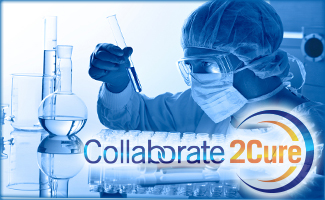
Over the past eight weeks more than 200 scientists, clinicians, entrepreneurs and students have gathered to gain and share knowledge surrounding cancer immunotherapy. This fast-paced, evolving field of scientific research is creating several new methods for diagnosing and treating cancer.
A new program from The Kansas City Area Life Sciences Institute (KCALSI), Collaborate2Cure, advances cancer immunotherapy research by providing a forum for collaboration, allowing scientists in the KC region to share their personal research on ground-breaking ways to stimulate immune cells to fight cancer, and ultimately vie for funding dollars.
Immunotherapies use a person’s own immune system to work harder and smarter to fight the cancer disease. Sometimes the immune system does not recognize cancerous cells as dangerous because they are very similar to normal cells. Researchers have found ways to aid the immune system in recognizing cancer cells so that it will destroy them. To do this, the immune cells are removed from the patient’s blood and altered in the lab to have receptors on the surface of the cell. The immune cells are then multiplied and infused back into the patient’s blood, where they can find the cancerous cells and attack them. Within the KC region, several doctors and scientists are researching ways to use these methods as a weapon against cancer. As a community we can all learn from each other.
Scientific collaboration can cultivate more creativity, increase funding and result in higher impact publications. To achieve these outcomes and more, KCALSI created Collaborate2Cure with the goal of stimulating regional scientific collaboration and developing innovative ways to solve scientific challenges. Immunotherapy was chosen as the first topic in the series.
At the conclusion of the current cancer immunotherapy series, KCALSI will release a request for proposals to support collaborative, innovative, research projects spawned from the discussions at a funding level of up to $50,000 for one year.
There are also several ways the scientific and regional community can support this research. After the presentations, every presenter is asked, “What can the region do for you from a collaboration perspective?” A few answers the presenters have given are: collaboration and feedback from the medical community, money, access to biospecimens and potential contribution of the microbiome in effective therapy.
The current Collaborate2Cure series occurs every Thursday through mid-December at the Kauffman Foundation or via live webcast on ZOOM. KCALSI also hosts a weekly networking event after Collaborate2Cure which includes hor d’oeuvres and beverages. Stay tuned for information revealing the topic for our next Collaborate2Cure series in the upcoming weeks. To learn more and register, please visit collaborate2cure.org.